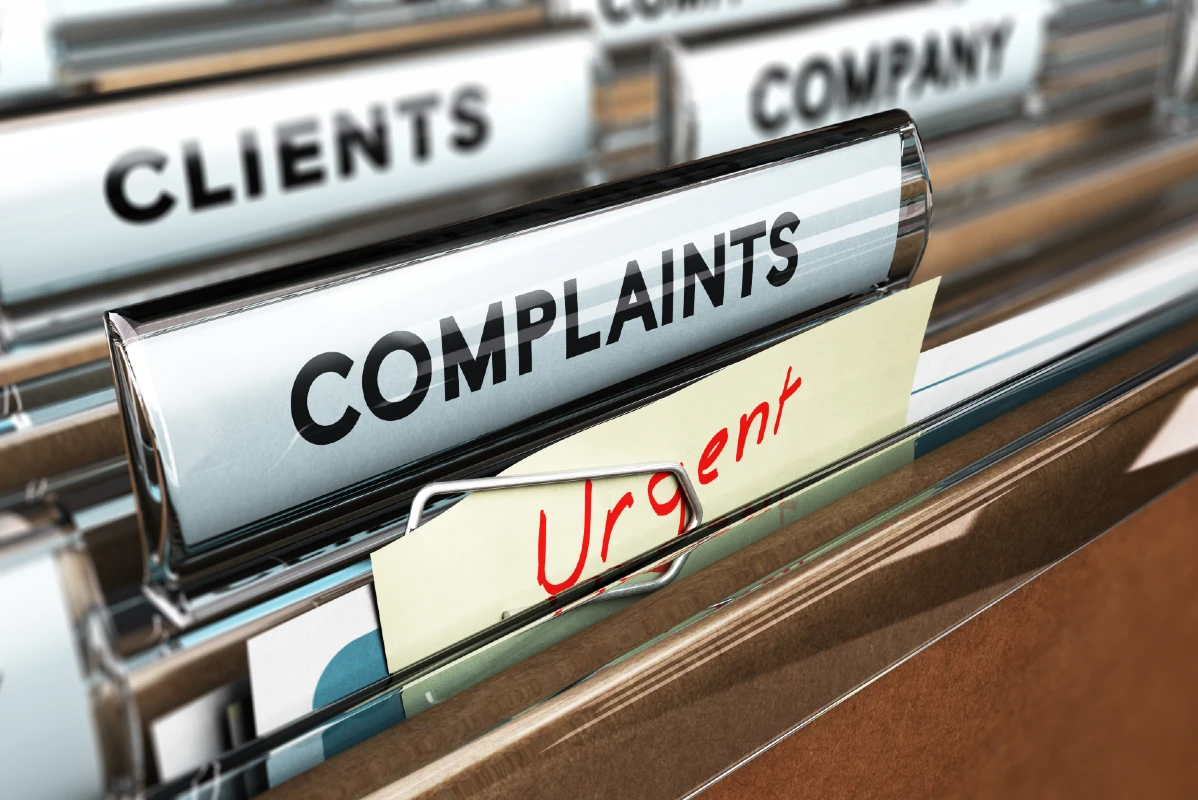We use cookies to help provide you with the best possible online experience.
By using this site, you agree that we may store and access cookies on your device. Cookie policy.
Cookie settings.
Functional Cookies
Functional Cookies are enabled by default at all times so that we can save your preferences for cookie settings and ensure site works and delivers best experience.
3rd Party Cookies
This website uses Google Analytics to collect anonymous information such as the number of visitors to the site, and the most popular pages.
Keeping this cookie enabled helps us to improve our website.

Complaints Procedure
Arundel surgery welcomes concerns and complaints in a positive way and recognises them as an important insight into how we can improve our services. We need to listen to the complaints and concerns raised, to ensure that we are meeting the demands of our patients and are always looking for ways in which to improve.
Patient feedback ensures we know what is working well and what needs further improvement. We are determined to use this information and learn from it.
How to Make a Complaint
If one of our patients perceives the service that we provide to be unacceptable, we would like to know about it. Without such feedback, we would not be aware of areas in which we need to improve. We hope that the majority of problems can be resolved quickly and easily – at the time that the problem occurred and with the staff member(s) concerned. If a problem cannot be resolved in this manner, we would like to know as soon as possible as this will give us a better opportunity to establish exactly what happened.
If you wish to make a complaint, you can do so in person, by telephone, in writing (post or email) – or face-to-face. If you wish to meet our Practice Business Manager, our Reception staff will try to arrange an urgent appointment. We are happy for you to be accompanied by a friend or relative to such a meeting.
If you wish to make your complaint by post, we would request that you write (clearly marked as 'Private & Confidential') to our Practice Manager at the following address:-
Mrs G Harrison - Practice Manager
The Arundel Surgery
Green Lane Close
Arundel
West Sussex BN18 9HG
Our Practice Manager will endeavour to send an acknowledgement within 3 working days. They will then carry-out an investigation into the alleged incident before sending a written response. Depending upon the individual complaint, this process may take some time. Once they have carried out a full investigation, our Practice Manager will write a letter of explanation and/or apology in association with the GP Partners. Where relevant, they will also advise what steps they are intending to take to avoid a recurrence of the problem.
Complaints should, ideally, be resolved locally by the Practice but, there is also a local advocacy service where someone with a grievance may be able to obtain some impartial advice. Please contact:-
Healthwatch West Sussex
Independent Health Complaints Advocacy Service (IHCAS)
Telephone: 0300 012 0122
Address: The Billingshurst Community Centre, Roman Way, Billingshurst, West Sussex RH14 9QW
NHS England
Patients who prefer a national body to process their complaint may wish to contact NHS England via:
Telephone: 0300 311 2233
Address: NHS England, PO BOX 16738, Redditch, B97 9PT
Health Ombudsman
In the event that the complaint has not been resolved locally to the complete satisfaction of the complainant, you may contact the Health Ombudsman by:
Telephone: 0345 015 4033 (Mon–Fri 8:30am–5:30pm)
Address: The Parliamentary and Health Service Ombudsman, Millbank Tower, Millbank, London, SW1P 4QP
1. Complaints Policy Introduction
1.1. Policy Statement
The purpose of this document is to ensure that all staff are aware of the complaints procedure within the Practice, affording patients or their representatives the opportunity to make a complaint about the care or treatment they have received at the practice.
1.2. Status
This document and any procedures contained within it are non-contractual and may be modified or withdrawn at any time. For the avoidance of doubt, it does not form part of your contract of employment.
1.3. Training and Support
The practice will provide guidance and support to help those to whom it applies to understand their rights and responsibilities under this policy. Additional support will be provided to managers and supervisors to enable them to deal more effectively with matters arising from this policy.
2. Scope
2.1. Who it applies to
This document applies to all employees of the practice and other individuals performing functions in relation to the practice, such as agency workers, locums and contractors.
2.2. Why and how it applies to them
All staff at the Practice are to be aware of this policy and should understand that all patients have a right to have their complaints acknowledged and investigated properly. The Practice takes complaints seriously and ensures that they are investigated in an unbiased, transparent, non-judgemental and timely manner. We will maintain communication with the complainant (or their representative), ensuring they know the complaint is being taken seriously.
The practice aims to design and implement policies and procedures that meet the diverse needs of our service and workforce, ensuring that none are placed at a disadvantage over others, in accordance with the Equality Act 2010. Consideration has been given to the impact this policy might have in regard to the individual protected characteristics of those to whom it applies.
3. Guidance
3.1. Legislation
Every NHS facility has a complaints procedure; this permits a patient (or their nominated representative) to submit a complaint either to the NHS organisation or the organisation that has been commissioned by the NHS to provide a service.
This practice adopts a patient-focused approach to complaint handling in accordance with the National Health Service England Complaints Policy (2017), whilst also conforming to the guidance detailed in:
- Parliamentary & Health Service Ombudsman’s Principles of Good Complaints Handling
- My Expectations
- The NHS Constitution
- Health and Social Care Act 2008 (Regulated Activities) Regulations 2014: Regulation 16
3.2. Definitions of a Complaint
A complaint or concern is an expression of dissatisfaction about an act, omission or decision of NHS England, either verbal or written, and whether justified or not, which requires a response.
There is no difference between a ‘formal’ and an ‘informal’ complaint. Both are expressions of dissatisfaction.
3.3. Complaints Procedure Promulgation
The Practice has a notice on display in each surgery detailing the complaints process. In addition, the process is included on the practice website, and a complaints leaflet is also available from reception. The information provided is written in conjunction with this policy and refers to the legislation detailed in paragraph one.
3.4. Responsible Person
At the Practice, the responsible person is Gabby Harrison, Practice Manager. She is responsible for ensuring compliance with the complaints regulations and making sure action is taken as a result of the complaint.
3.5. Complaints Manager
The Practice complaints manager is Gabby Harrison, the Practice Manager. She is responsible for managing all complaints procedures and must be readily identifiable to service users. The responsible person and complaints manager can be the same person.
Complainant Options
The complainant, or their representative, can complain about any aspect of care or treatment they received at this practice to:
- This practice via the complaints manager
- NHS England:
- Telephone 03003 112233
- Complain to NHS England
- In British Sign Language (BSL) patients can talk to NHS England via a video call to a BSL interpreter
3.6. Timescale
The time constraint on bringing a complaint is 12 months from the occurrence giving rise to the complaint, or 12 months from the time that they become aware of the matter about which they wish to complain.
If, however, there are good reasons for complaints not being made within the timescale detailed above, consideration may be afforded to investigating the complaint if it is still feasible to investigate the complaint effectively and fairly. Should any doubt arise, further guidance should be sought from NHS England by the complaints manager or one of the GP Partners.
3.7. Response Times
The complainant has a right to be regularly updated regarding the progress of their complaint. The complaints manager at the Practice will provide:
- An initial response to acknowledge any complaint within three working days after the complaint is received.
- Regular updates during the investigation.
- Resolution of the complaint within 40 days.
The complaints manager will negotiate a complaints plan with the complainant or their representative which will detail the agreed timescales for investigation. In many cases, a prompt response, including an explanation and an apology, will suffice and prevent the complaint from escalating (an apology does not constitute an admission of organisational weakness).
3.8. Verbal and Written Complaints
Patients will opt to complain either verbally or in writing. No matter what the cause of the complaint, all staff are to offer empathy when entering into discussions with the complainant. In accordance with Regulation 16, all staff at the Practice will fully understand the complaints process.
If a patient wishes to complain verbally, an appointment is to be made for them to meet the complaints manager. An acknowledgement of the verbal complaint by the complaints manager, or nominated deputy in their absence, will suffice as an acknowledgement. The complaints manager does not need to respond in writing, but must record the verbal complaint in the complaints log; this will enable any trends to be identified and improvements to services made if applicable. The complaints manager should record notes of the discussion (for reference only) which may be used when discussing complaints at practice meetings.
Discussing the nature of the complaint with the complainant in person or via telephone may enable a local resolution, which is the quickest method of resolving a complaint and will negate the requirement for the complaint to proceed through the formal complaint process.
If a patient opts to complain in writing (letter or email), the complaints manager is to acknowledge receipt of the complaint within three working days. This acknowledgement will offer the complainant the opportunity to have a discussion about their complaint, while explaining the process and enabling the complaints manager to determine if local resolution is achievable. Where possible, patients and/or their representatives should be encouraged to use the complaint form at Annex A of this policy.
If local resolution is not an option, the complaints manager will then discuss with the complainant a complaints plan and an agreed time frame for an investigation. Complainants should be advised that this timescale is merely indicative and there may be, on occasion, the need to liaise with other service providers, i.e. secondary care, which could delay the process. However, reassurance will be provided that the complainant will be provided with regular updates by the complaints manager regarding their complaint.
3.9. Investigating Complaints
The Practice will ensure that complaints are investigated effectively and in accordance with extant legislation and guidance. This practice will follow eight standards when addressing complaints:
- The complainant has a single point of contact in the organisation and is placed at the centre of the process. The nature of their complaint and the outcome they are seeking is established at the outset.
- The complaint undergoes initial assessment and any necessary immediate action is taken. A lead investigator is identified.
- Investigations are thorough, where appropriate obtain independent evidence and opinion, and are carried out in accordance with local procedures, national guidance and within legal frameworks.
- The investigator reviews, organises and evaluates the investigative findings.
- The judgement reached by the decision maker is transparent, reasonable and based on the evidence available.
- The complaint documentation is accurate and complete. The investigation is formally recorded, the level of detail appropriate to the nature and seriousness of the complaint.
- Both the complainant and those complained about are responded to adequately.
- The investigation of the complaint is complete, impartial and fair.
3.10. Final Formal Response to a Complaint
Upon completion of the investigation, a formal written response will be sent to the complainant and will include the following information:
- An explanation of how the complaint was considered
- An apology if appropriate
- An explanation based on facts
- Whether the complaint in full or in part is upheld
- The conclusions reached in relation to the complaint, including any remedial action that the organisation considers to be appropriate
- Confirmation that the organisation is satisfied that any action has been or will be actioned
- Where possible, we will respond to people about any lessons learned
- Information and contact details of the Parliamentary and Health Service Ombudsman as the next stage of the NHS complaints process
The complaints manager will clearly stipulate that this response is the final response to be issued by the Practice, and if the complainant is not satisfied then they should contact the ombudsman.
3.11. Confidentiality in Relation to Complaints
Any complaint is investigated with the utmost confidence and all associated documentation will be held separately from the complainant’s medical records. Complaint confidentiality will be maintained, ensuring only managers and staff who are involved in the investigation know the particulars of the complaint.
3.12. Persistent and Unreasonable Complaints
The management of persistent and unreasonable complaints at the Practice is achieved by following the guidance detailed in Appendix 2 of the NHS England Complaints Policy.
3.13. Complaints Involving Locum Staff
The Practice will ensure that all locum staff, be it GPs, nurses or administrative staff, are aware of the complaints process and that they will be expected to partake in any subsequent investigation, even if they have left the practice (keeping in mind the 12-month time frame to complain). Locum staff must receive assurance that they will be treated equally and that there is no discrepancy between locum staff, salaried staff or partners.
3.14. Summary
The care and treatment delivered by the Practice are done so with due diligence and in accordance with current guidelines. However, it is acknowledged that sometimes things can go wrong. By having an effective complaints process in place, this practice is able to investigate and resolve complaints in a timely manner, achieving the desired outcome for service users, whilst also identifying lessons learnt and ultimately improving service delivery.
Annual Complaints Report
Introduction
The purpose of the Annual Complaints Report (ACR herein) is to detail the complaints received by the Practice during the year 1st April to 31st March. The practice takes a proactive approach to the management of complaints, a process that is aimed at improving the quality of service and delivering a better patient experience.
Purpose
The purpose of the ACR is to:
- Specify the number of complaints received during the reporting period
- Specify the number of complaints that were warranted, unwarranted or partially warranted
- Specify the nature of the complaints (source, staff group, categorisation)
- Specify the number of known referrals to the ombudsman
- Identify trends that can be analysed and audits undertaken
- Identify remedial actions and learning points
- Notify patients of any changes to policy as a result of complaints
In accordance with NHS(E) directives regarding the complaints process, the ACR for the Practice will be available to the public upon request – suitably anonymised.


